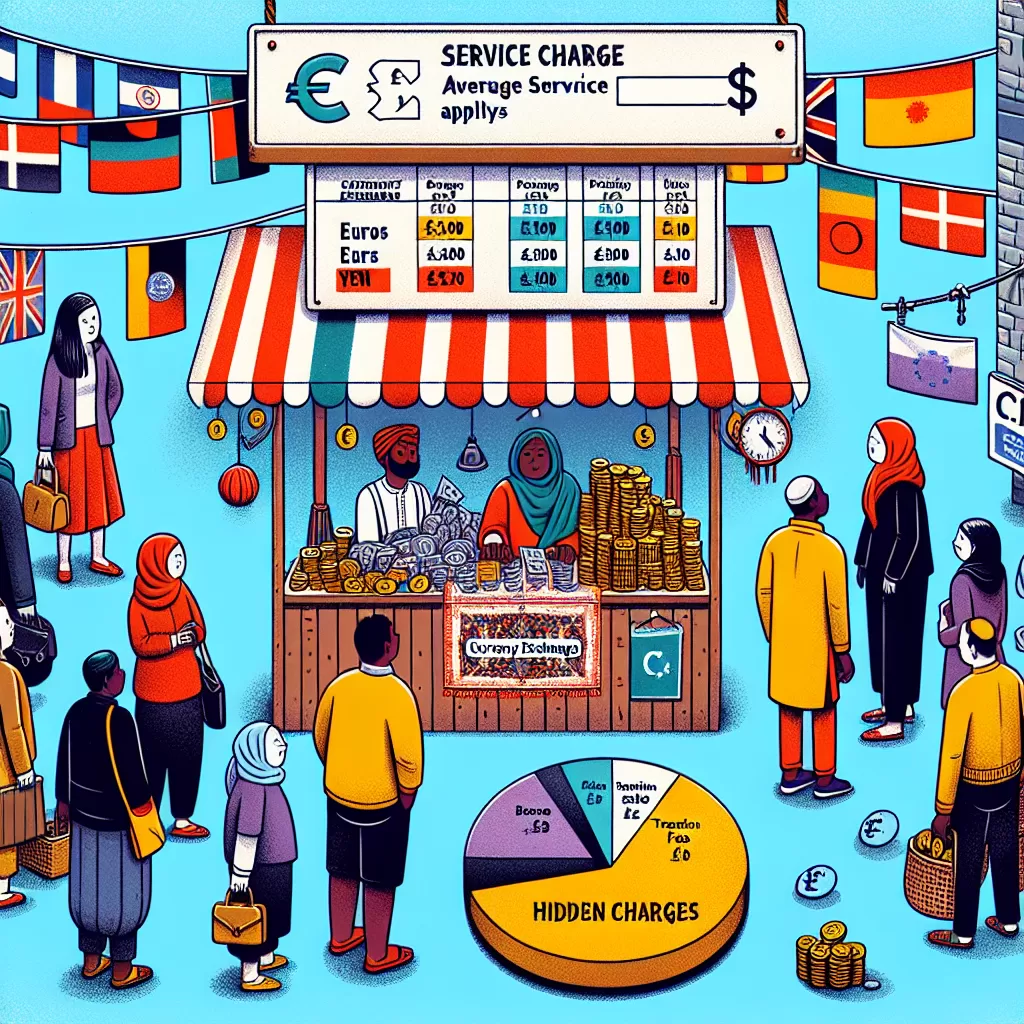How Much Does Currency Exchange Charge
Follow Currency Mart April 10, 2024
Where to purchase Foreign Currencies?

Introduction
Exchange currency comes with its own kaleidoscope of fees and charges that could significantly impact your pocketbook. These fees vary based on where you choose to exchange your money, and understanding the costs behind each option is fundamental to making informed decisions. In this article, we'll help demystify these charges.Bank Currency Exchange
Most banks offer currency exchange services, but it's important to remember that they are not doing it for free. Banks apply fees and charges both directly and indirectly. The direct charges include service fees, usually ranging from $3 to $10. Indirect charges include the “spread” – the difference between the exchange rate that the bank buys the currency, and the rate at which it sells to you. This spread could be anywhere from 2.5% to 3.5%.Credit and Debit Card Foreign Transaction Fees
It's convenient to use a card to pay for purchases abroad, but your credit or debit card provider will likely apply foreign transaction fees, typically around 1% to 3%. Additionally, there may also be foreign ATM fees if you decide to withdraw cash from an ATM, which can range from $2 to $5.Currency Exchange Bureaus
Currency exchange bureaus, both in person and online, provide another avenue to swap your currency. Their fees vary but are usually built into the exchange rate – the so-called “spread”. The spread at these bureaus could be significantly higher than banks, possibly reaching up to 10%.Peer-to-Peer Currency Exchange
This innovative model allows individuals to exchange currencies with each other directly, often leading to competitive rates. Platforms facilitating these exchanges usually charge a small commission, around 0.5%, making it an attractive low-cost option.Prepaid Travel Cards
These are a handy tool for travelers, allowing you to load multiple currencies onto a single card. However, several fees are associated with this option, such as initial purchasing fee, reloading fee, and a fee to withdraw cash from ATMs. Depending on the provider, these fees can range from 1% to 3%.Online Money Transfer Services
Fast and suitable for larger amounts, online money transfer services typically have lower fees than banks. They charge a small percentage of the transfer amount, which typically ranges from 0.5% to 2%.Conclusion
Currency exchange charges can vary dramatically, and in today's global economy, it’s more important than ever to understand the charges involved in exchanging currency. Always inquire about the costs upfront, compare rates from different providers, and choose the method that best fits your circumstances and minimizes your costs. Remember, the best deal is not always the one with the lowest fee but rather the one with the most transparent pricing.
Where to purchase Foreign Currencies?